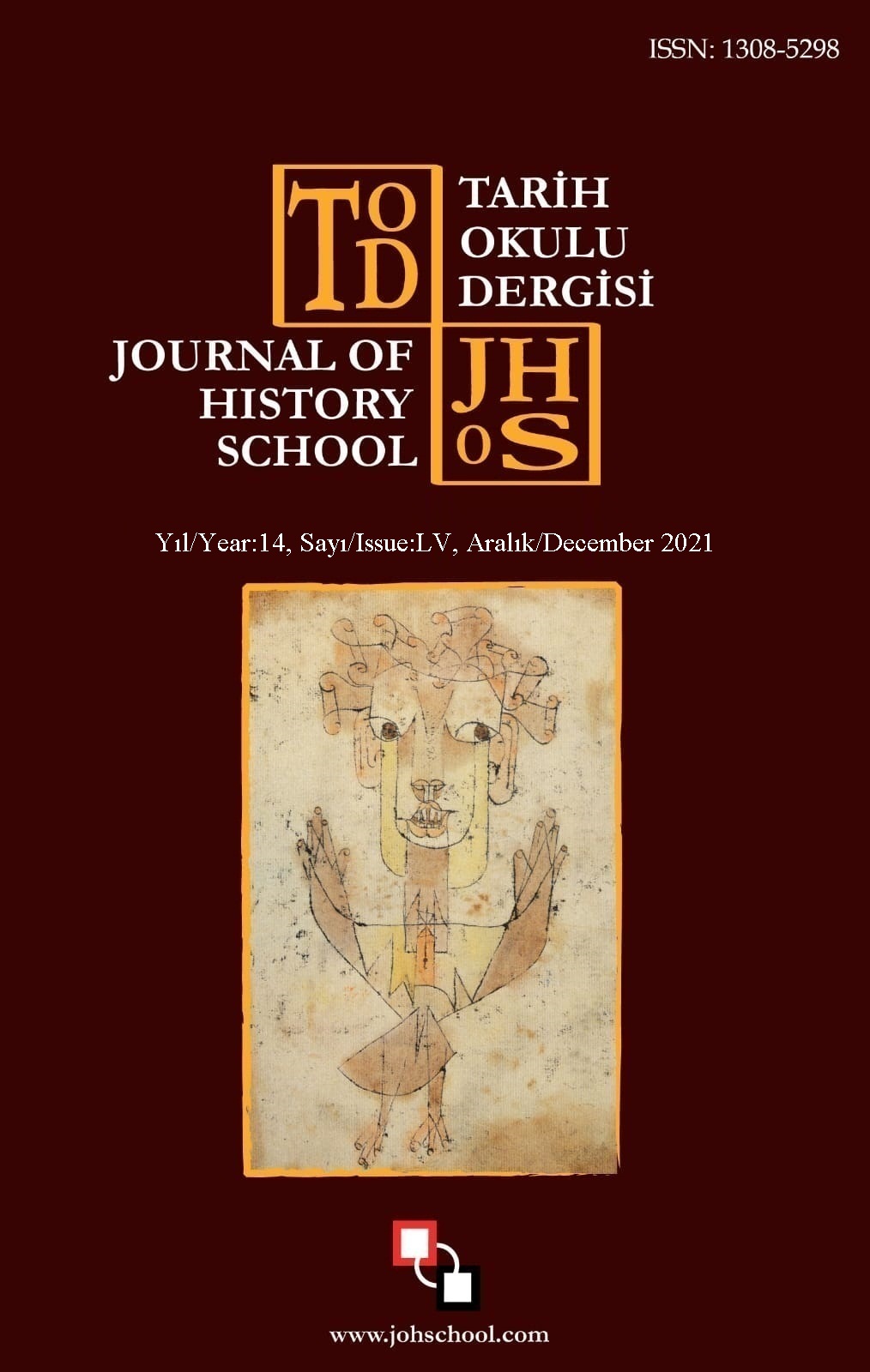Author :
Abstract
Bilgi çağını yaşadığımız günümüzde, öğretim sürecinin temel değişkenleri olan öğrenci, program ve öğretmen paydaşlarına teknoloji gibi yeni bir paydaşın daha eklendiği gözlenmektedir. Öğretim sürecindeki bu yeni durum yakın zamanda deneyimlediğimiz Covid-19 Pandemisi sürecinde iyice belirginleşmiştir. Bu yeni durumla ilgili tartışmalarda teknolojiye eklenmiş öğretimin gerekliliğinden ziyade bunun nasıl olması gerektiği irdelenmektedir. Dolayısı ile teknolojiye eklenmiş öğretim, son yıllardaki eğitim araştırmalarında ön sıralarda yer almaktadır. Bu çalışmanın amacı, Bilgi Çağı’nın önde gelen teknolojilerinden birisi olan Artırılmış Gerçeklik (AR) uygulamalarının sosyal bilgiler öğretimindeki yerini, önemini ve etkisini tartışmaktır. Derleme niteliğindeki çalışmanın yöntemi dokümanter analiz olup, veriler ilgili literatürden belirli ölçütlere göre seçilmiş, bilimsel dokümanlardan (belgelerden) elde edilmiştir. Bu belgeler çalışmanın genel amacı ve alt amaçları doğrultusunda betimsel analiz ile taranarak, AR ve AR uygulamalarının genel olarak eğitimde, spesifik olarak da sosyal bilgiler öğretimine yansımaları irdelenmiştir.
Bu irdelemelerde taranan belgeler okunarak önce betimlenmiş, akabinde yorumlanmış ve son olarak da belirli çıkarımlara gidilmiştir. Çalışma sonucunda, AR uygulamalarının eğitime yansımalarının çağın gereği olduğu; konu itibarıyla bu yansımaların sosyal bilgiler öğretiminde akademik başarı, duyuşsal gelişme ve okulun etkililiğini desteklediği anlaşılmıştır. Çalışmada ulaşılan diğer bir sonuç da, AR uygulamalarının sosyal bilgiler öğretimine eklemlenmesi konusunda, öğretim programı ve öğretim süreci bağlamında daha atılacak çok adım olduğu tespitidir.
Keywords
Abstract
Today, we live in the Information Age, it is observed that a new stakeholder such as technology has been added to the stakeholders of students, programs and teachers, which are the main variables of the teaching process. This new situation in the teaching process has become more evident during the Covid-19 Pandemic we have experienced recently. In the discussions about this new situation, rather than the necessity of technology articulated teaching, how it should be is discussed. Therefore, technology integrated teaching has been at the forefront of educational studies in recent years. The aim of this study is to discuss the place, importance and effect of Augmented Reality (AR) applications, one of the leading technologies of the Information Age, in social studies teaching. The method of the compilation study is documentary analysis, and the data were obtained from scientific documents (documents) selected according to certain criteria from the relevant literature. These documents were scanned with descriptive analysis in line with the general purpose and sub-purposes of the study, and the reflections of AR and AR applications in education in general and social studies teaching in particular were examined. In these examinations, the scanned documents were read, first described, then interpreted, and finally certain inferences were made. As a result of the study, it was concluded that the reflections of AR applications on education are a necessity of the Age; In terms of the subject, it was understood that these reflections support academic success, affective development and the effectiveness of the school in social studies teaching. Another result reached in the study is the determination that there are many more steps to be taken in the context of the curriculum and teaching process in the integration of AR applications into social studies teaching.





